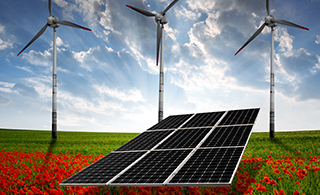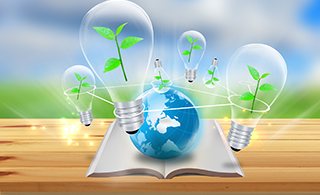 Energy & Utilities, Consulting
Conduct In-country training on energy management, planning scenarios and sub-national energy management plans for SES project in DPRK
Energy & Utilities, Consulting
Conduct In-country training on energy management, planning scenarios and sub-national energy management plans for SES project in DPRK
Conduct In-country training on energy management, planning scenarios and sub-national energy management plans for SES project in DPRK
Conduct In-country training on energy management, planning scenarios and sub-national energy management plans for SES project in DPRK has been closed on 30 Mar 2017. It no longer accepts any bids. For further information, you can contact the United Nations Development Programme
Bellow, you can find more information about this project:
Location: South Korea
General information
United Nations Development Programme
Energy & Utilities
Consulting
Closed
Timeline
17 Mar 2017
30 Mar 2017
Not available
Contacts
Description
Rural areas and communities in DPR Korea lack access to adequate and reliable energy services due to: (i) insufficient supply of primary energy inputs, (ii) inadequate infrastructure, technological and managerial know-how and competences for the sustainable exploitation of local renewable energy sources; and (iii) lack of appropriate operational modalities enabling the sustainable delivery of the technologies to provide basic energy services.
The SES Project is addressing this development problem by drawing upon the lessons from the previous two UNDP projects that focused of sustainable energy i.e. Sustainable Rural Energy Development Programme (SRED), and Small Wind Energy Development Project for Rural Areas (SWEDPRA). The SES project is focusing on the attainment of effective and sustainable local energy solutions that generate positive impact among rural beneficiaries, rather than involved in technology development.
The project objective is to provide local rural communities in targeted areas with adequate, secure and reliable access to renewable energy resources, cost-effective energy efficiency and energy conservation solutions for meeting basic energy demands under appropriate operational modalities.
The primary data of energy demand and resource assessments were completed in 15 Ris during 2016. The data clearly indicates that there is unmet demand for both electricity and thermal energy.
It was assessed that electricity demand is mainly for lighting and appliances. When the annual consumption of electricity is compared with international standard, deficiency ranges from 10 to 30 kWh/person/y. When compared with the actual demand, the supply deficiency is 50 to 105 kWh/person/y (unmet demand of electricity).
Major thermal energy demand for a household is for heating then for cooking. When the annual consumption of thermal energy for cooking is compared with international standard, 2 to 3 GJ/person/y is the deficiency. When compared with the actual demand for cooking, space and water heating, the supply deficiency is 15 to 20 GJ/person/y (unmet demand).
SES project will address this gap in energy demand through 9 RE and EE technologies and measures.
Receive Daily Tenders and Grants notifications
Subscribe nowFeatured tenders
-
 Tender
23 Feb 2021
South Korea
Provision of Short Messaging Services (SMS) for the Private Sector Partnerships of United Nations High Commissioner Korea
United Nations Capital Development Fund
Tender
23 Feb 2021
South Korea
Provision of Short Messaging Services (SMS) for the Private Sector Partnerships of United Nations High Commissioner Korea
United Nations Capital Development Fund
-
 Tender
16 Mar 2021
South Korea
Provision of Short Messaging Services (SMS) for the Private Sector Partnerships of United Nations High Commissioner Korea
United Nations Capital Development Fund
Tender
16 Mar 2021
South Korea
Provision of Short Messaging Services (SMS) for the Private Sector Partnerships of United Nations High Commissioner Korea
United Nations Capital Development Fund
-
 Tender
28 Jul 2017
South Korea
ITB-Supply of Meteorological Equipment with Descriptions for SERCARB Project DPRK
United Nations Development Programme
Tender
28 Jul 2017
South Korea
ITB-Supply of Meteorological Equipment with Descriptions for SERCARB Project DPRK
United Nations Development Programme
-
 Tender
28 Aug 2017
South Korea
Invitation to Bid (ITB)-Materials and Appliances for Energy Efficiency Measures under SES Project of Democratic People’s Republic of Korea
United Nations Development Programme
Tender
28 Aug 2017
South Korea
Invitation to Bid (ITB)-Materials and Appliances for Energy Efficiency Measures under SES Project of Democratic People’s Republic of Korea
United Nations Development Programme
-
 Tender
28 Aug 2017
South Korea
Invitation to Bid (ITB)-Materials and Appliances for Energy Efficiency Measures under SES Project of Democratic People’s Republic of Korea
United Nations Development Programme
Tender
28 Aug 2017
South Korea
Invitation to Bid (ITB)-Materials and Appliances for Energy Efficiency Measures under SES Project of Democratic People’s Republic of Korea
United Nations Development Programme
Get free access to our Tenders & Grants Database
Our service is free of charge and will always be
Join NowDonors
-
 Agency For Technical Cooperation And Development
Agency For Technical Cooperation And Development
-
 BANCO CENTROAMERICANO DE INTEGRACION ECONOMICA
BANCO CENTROAMERICANO DE INTEGRACION ECONOMICA
-
 EUROPEAN CENTRE FOR THE DEVELOPMENT OF VOCATIONAL TRAINING
EUROPEAN CENTRE FOR THE DEVELOPMENT OF VOCATIONAL TRAINING
-
 DEPARTMENT OF FOREIGN AFFAIRS AND TRADE - AUSTRALIA
DEPARTMENT OF FOREIGN AFFAIRS AND TRADE - AUSTRALIA
-
 ITALIAN DIRECTORATE-GENERAL FOR DEVELOPMENT COOPERATION
ITALIAN DIRECTORATE-GENERAL FOR DEVELOPMENT COOPERATION
-
 EUROPEAN INSURANCE AND OCCUPATIONAL PENSIONS AUTHORITY
EUROPEAN INSURANCE AND OCCUPATIONAL PENSIONS AUTHORITY
-
 THE SEVENTH FRAMEWORK PROGRAMME (EUROPEAN COMMISSION)
THE SEVENTH FRAMEWORK PROGRAMME (EUROPEAN COMMISSION)
-
 HORIZON 2020
HORIZON 2020
-
 SWISS DEVELOPMENT COOPERATION
SWISS DEVELOPMENT COOPERATION
-
 WORLD INTELLECTUAL PROPERTY ORGANIZATION
WORLD INTELLECTUAL PROPERTY ORGANIZATION